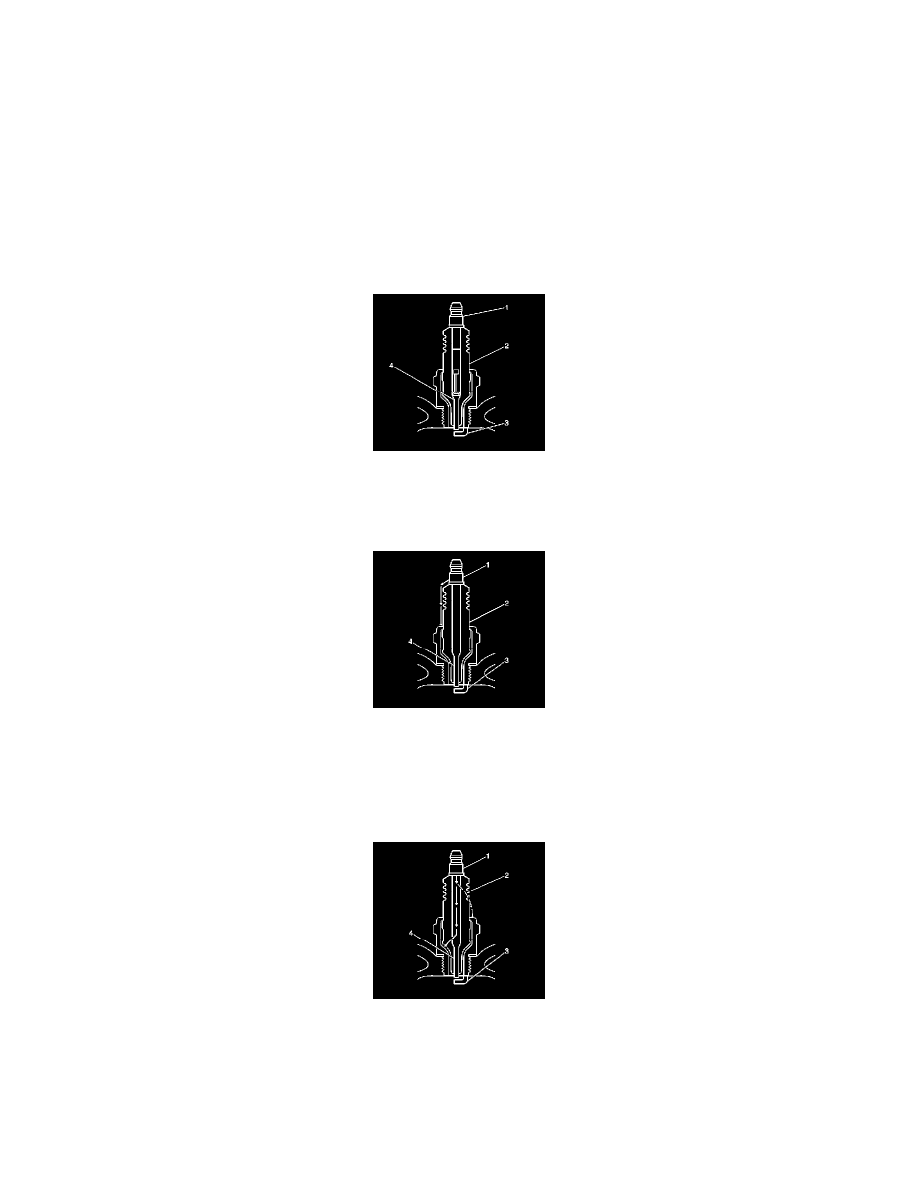Corvette V8-6.2L (2008)

Spark Plug: Testing and Inspection
Spark Plug Inspection
Spark Plug Usage
*
Verify that the correct spark plug is installed. An incorrect spark plug causes driveability conditions. Refer to Ignition System Specifications (See:
Powertrain Management/Ignition System/Specifications) for the correct spark plug.
*
Ensure that the spark plug has the correct heat range. An incorrect heat range causes the following conditions:
-
Spark plug fouling - colder plug
-
Pre-ignition causing spark plug and/or engine damage - hotter plug
Spark Plug Inspection
*
Inspect the terminal post (1) for damage.
-
Inspect for a bent or broken terminal post (1).
-
Test for a loose terminal post (1) by twisting and pulling the post. The terminal post (1) should NOT move.
*
Inspect the insulator (2) for flashover or carbon tracking, soot. This is caused by the electrical charge traveling across the insulator (2) between
the terminal post (1) and ground. Inspect for the following conditions:
-
Inspect the spark plug boot for damage.
-
Inspect the spark plug recess area of the cylinder head for moisture, such as oil, coolant, or water. A spark plug boot that is saturated causes
arcing to ground.
*
Inspect the insulator (2) for cracks. All or part of the electrical charge may arc through the crack instead of the electrodes (3, 4).
